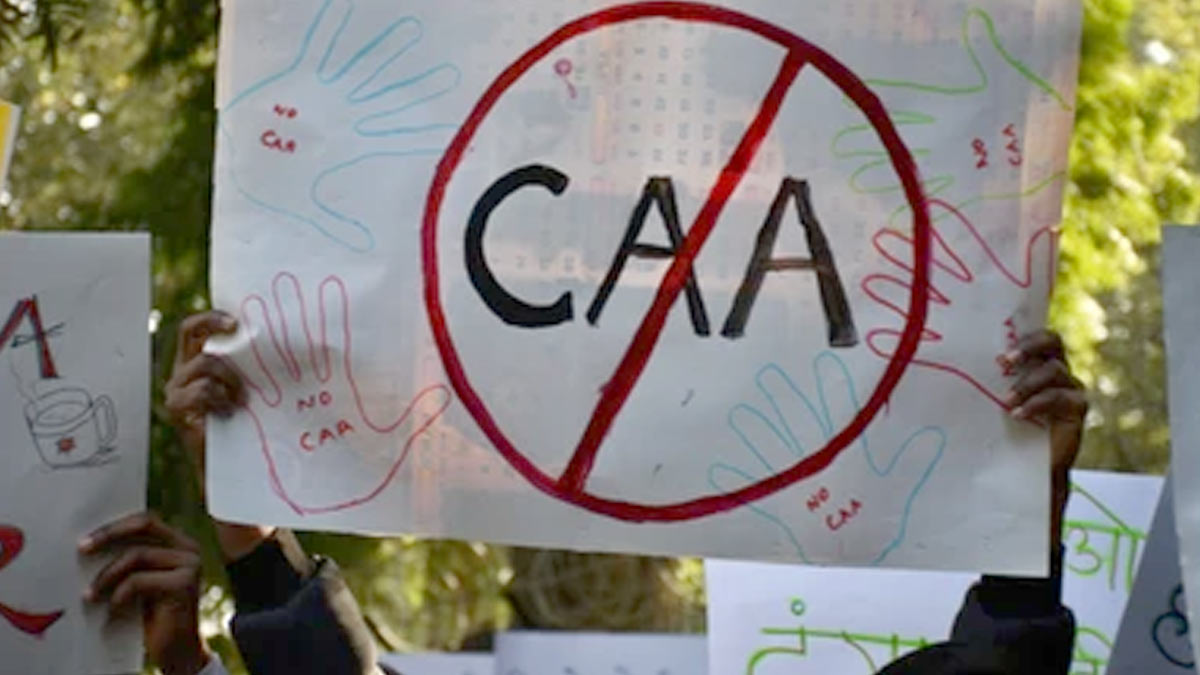
Ahead of the Lok Sabha elections in 2024, the central government announced the implementation of the Citizenship Amendment Act (CAA). Union Home Minister Amit Shah took to his official Twitter (Now X) handle to hail the notification from the Modi government. His Tweet read, "The Modi government today notified the Citizenship (Amendment) Rules, 2024. These rules will now enable minorities persecuted on religious grounds in Pakistan, Bangladesh, and Afghanistan to acquire citizenship in our nation. With this notification PM Shri @narendramodi Ji has delivered on another commitment and realised the promise of the makers of our constitution to the Hindus, Sikhs, Buddhists, Jains, Parsis, and Christians living in those countries."
Attached with the Tweet was an application form for a grant of citizenship by registration or naturalisation. (PDF link here)
Soon after the Citizenship Amendment Act (CAA) was passed by the Parliament of India in 2019, it sparked protests and debates across the country around the religion-based citizenship act. With the announcement of the implementation of the controversial act recently, protests have once again erupted in many parts of India.
For the unversed, here is a quick timeline with some frequently asked questions (FAQs) about CAA answered here.
The Citizenship Amendment Act (CAA) was a law passed by the Parliament Of India back in December 2019 with the motive of granting Indian citizenship to illegal immigrants. CAA covers citizens from neighbouring countries, Afghanistan, Bangladesh, and Pakistan from Hindu, Sikh, Buddhist, Parsi, Jain, or Christian faith but excludes people from the Muslim community.

Minister of Home Affairs, Amit Shah back in 2016 proposed the Citizenship Amendment Bill (CAB) in the Lok Sabha. Later, CAB became CAA with the act being called the Citizenship Amendment Bill. The act received no support during the 16th Lok Sabha session.

The act was reintroduced in the year 2019 and was passed by both houses of Parliament. The bill was also received by Ram Nath Kovind, President of India's approval.
Don't Miss: Know Your Rights: 10 Legal Safeguards Every Indian Woman Should Know
According to the SCHEDULE IC, The Citizenship Rules, 2009, the following documents, issued by an Indian authority will be admissible even beyond their validity period. The documents should establish that the applicant had entered India on or before 31.12.2014 as per the application form shared by Minister Amit Shah in his official Tweet.

The Ministry Of Home Affairs in a Q&A form according to a report by Hindustan Times explained how the implementation of CAA won't affect the rights of Muslims in the country. It read, “Indian Muslims need not worry as CAA has not made any provision to impact their citizenship and has nothing to do with the present 18 crore Indian Muslims, who have equal rights like their Hindu counterparts. No Indian citizen would be asked to produce any document to prove his citizenship after this act.”
Don't Miss: RSS To Most Popular Global Leader, Read The Story Of Prime Minister Of India

We spoke to our legal expert too to understand the act’s impact on the Muslim community seeking citizenship in India. "Naturalisation is the legal act or process by which a non-national of a country acquires the nationality of that country after birth. While the Citizenship Act does not define “naturalisation”, section 6 speaks of the process of “Citizenship by Naturalisation” which provides that any person (who is a non Indian national) "of full age" (a major) and capacity (ie a person having mental capacity, being of sound mind), who is not an illegal migrant may qualify to be an applicant for Citizenship by Naturalisation. CAA does not cancel the naturalisation laws. Therefore, any person(s) including Muslim migrants from any foreign country, seeking Indian citizenship, can apply for the same under the existing laws," said Siddharth Chandrashekhar, Advocate and Legal Counselor, Bombay High Court.
The Citizenship Amendment Act (CAA) has been a subject of debate and controversy ever since the beginning and with its implementation announcement, there is likely to be a negative impact on the country's secular fabric. As per a report by The Wire, protests have erupted in Assam. All Assam Students Union (AASU) was out on the streets recently where copies of the act were burnt in dissent.
For more updates on CAA, stay tuned to HerZindagi.com
Also watch this video
Herzindagi video
Our aim is to provide accurate, safe and expert verified information through our articles and social media handles. The remedies, advice and tips mentioned here are for general information only. Please consult your expert before trying any kind of health, beauty, life hacks or astrology related tips. For any feedback or complaint, contact us at [email protected].